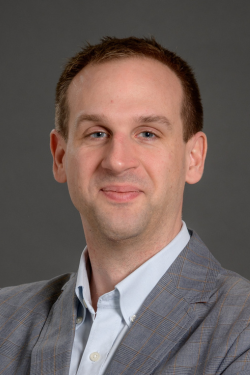Filip Rindler
2025 United Kingdom Award Finalist — Faculty

Current Position:
Professor of Mathematics
Institution:
University of Warwick
Discipline:
Applied Mathematics

Current Position:
Professor of Mathematics
Institution:
University of Warwick
Discipline:
Applied Mathematics
Recognized for: Developing the first rigorous theory describing how crystalline materials, like metals, deform through microscopic defects called dislocations.
Areas of Research Interest and Expertise:
Applied Mathematics; Partial Differential Equations; Calculus of Variations; Geometric Measure Theory
Previous Positions:
Research Summary:
Have you ever wondered how a metal spoon can bend without breaking? Research done by applied mathematician Filip Rindler, DPhil, bridges advanced mathematics and material science to answer just that. Rindler’s research has given us a new understanding of how microscopic defects, called dislocations, allow metals and other crystalline materials to deform. By developing groundbreaking mathematical models, Rindler has resolved century-old questions in solid mechanics and developed a rigorous geometric framework to describe deforming crystals. This research not only advances foundational mathematics but also provides transformative mathematical tools to bolster new avenues of research in material science.
“Despite millennia of metalworking, we lack a predictive model for metal deformation —the field's "Holy Grail." Advancing this quest through maths and material science has been profoundly rewarding, marking just the beginning of an incredible journey!”
Key Publications:
Other Honors:
2023 Consolidator Grant, European Research Council / UKRI
2018 Whitehead Prize, London Mathematical Society
2017 Starting Grant, European Research Council
2016 Turing Fellow, Alan Turing Institute
2014 EPSRC Research Fellow, EPSRC